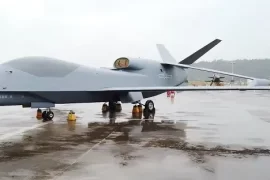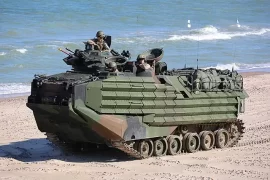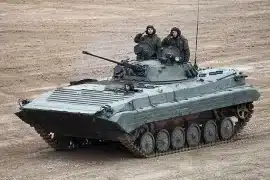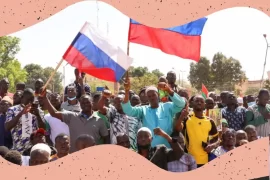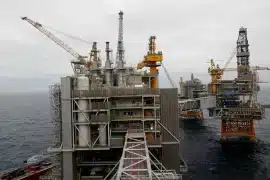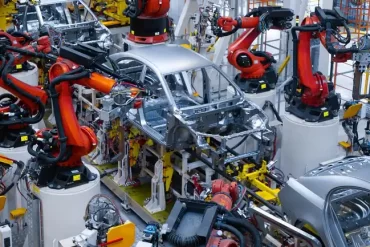After sixteen years of ascending to power, Hugo Chavez’s United Socialist Party of Venezuela got the taste of defeat at the National Assembly election held on 6 December 2015. Venezuela’s charismatic leftist leader Hugo Chavez was influenced by the anti-imperialist revolutionary leader Simon Bolivar and edified Bolivar’s ideas as Bolivarianism as a political ideology. With the death of Chavez in 2013, new leader Nicholas Maduro, once was a bus driver, sworn as the President of the oil rich Latin American country. Beginning with Maduro’s journey as president, analysts were skeptical about his ability to advance the revolutionary Bolivarian ideology led by Chavez and maintain the popularity of the Socialist party once accomplished by, largely, Chavez’s charisma. The prediction made by analysts was proved with the victory of center rightist political alliance Democratic Unity Roundtable (MUD) in the legislative election. Winning alliance secured 112 out of total 167 legislative constituencies of Venezuela. Analysts find the primary reason of Socialist party’s defeat in Venezuela’s struggling economy.
However, Maduro will be able to keep strong control and power over the judiciary and executive branches of the state until the next presidential election of 2019 thanks to Venezuela’s presidential government system. But winning alliance MUD will be a barrier to pass Maduro’s policy in the National Assembly and they themselves formulate new laws to bring changes in the country. As a first step, they have already declared to free the “political prisoners”, albeit there is doubt that the MUD will also face difficulty due to the supporters of Socialist party who were appointed to different important posts of the state during long 16-year rule.
The dwindling price of oil is the main cause of economic crisis in Venezuela. The country was advancing to build an egalitarian state with the help of the revenue earned from this oil resource. The global Organization of Petroleum Exporting Countries did not listen to the Venezuelan request to increase the price of oil due to the fear of losing the competition with shale oil. The USA produces the major share of shale oil, who, according to British Petroleum, emerged as the world’s number one oil producing country in 2014. The decreased price of oil, set by the OPEC, deteriorated the economic crisis of Venezuela and weakened the government management of economy further. Taking the advantage, International Monetary Fund (IMF) declared Venezuela as the world’s most “mismatched economy” quickly, the moment for what IMF was waiting for long. Now, Venezuela is the most inflated country in Latin America with acute crisis of basic consumer products. The condition is so severe that people have to go home without basic items even after waiting for several days in the long queue in front of the groceries. However, looking at only economic crisis as cause of Socialist party’s defeat in the recent election will be a skewed analysis. It needs attention on the role of the USA that has been trying to oust the leftist party from power starting from the very beginning. Both Chavez and his successor Maduro were trying very hard to transform Venezuela into, in Chavez’s term, “21st Century Socialism.” In pursuit of this goal, huge money earned from oil resource was diverted to social welfare and poverty alleviation programmes. Chavez took control over the oil revenue and started such a development programme through distributive policies that is outright opposite to the US led neoliberal economic development. Maduro also vowed to run the state and continue such development programmes. Leftist and center leftist political parties in other Latin American countries followed Chavez in his path to state power and, being inspired by Bolivarian ideals, started challenging the US dominance.
Venezuela is the driver of regional integrity, idea of welfare state and Bolivarian ideology in Latin America. It sells subsidized oil to the Caribbean and Central American countries so as to help them preventing the US influence in their internal affairs. According to US domino theory, toppling the socialist party of Venezuela from power will accelerate the demise of similar socialist political forces in Cuba, Ecuador and Bolivia; will strengthen the newly elected rightist political party in Argentina; and will pave the way for expanding the US military presence in other Latin American countries beyond Colombia, Peru, Paraguay, and Central America. This strategy drove the US policy makers to conspire in changing regime in Venezuela.
Venezuela’s relation with the USA started deteriorating with the Chavez era, mainly, due to his reluctance to serve US interest and his utterly anti-imperialist position. The diplomatic relation went at all-time low when Chavez expelled the US ambassador to Caracas, blaming him with the charge of igniting coup against his government. Some expected positive change of diplomatic relation when State Department Advisor Tom Shannon twice visited Caracas this year, which fell apart with recurring allegations of US involvement in plotting regime change in Caracas.
The USA has been trying to create instability in Venezuela for the last one era through economic destabilization, election-centric politics, sabotage and military intrusion. However, recently during Maduro regime, the USA has ignited the street violence subtly that created political instability. Media news shows that the USA has been involved indirectly in attacks on government installations and activists led by one of the opposition leaders Leopoldo Lopez from the beginning of 2014, which tolled 43 deaths and 870 injuries. It indiscriminately funded different NGOs, political parties and leaders, and ex and current military officers working against Maduro’s government. Besides, the
USA contrived another failed coup jointly designed by civilian and military groups at the beginning of 2015.
The USA played role in growing crisis of basic consumer items through massive stocking via retail and wholesale businessmen. It also involved in currency black market and created basic item shortage through smuggling to Colombia. Thus, public discontent was erupted and people lost faith on Maduro led Socialist party that resulted in the failure of his party in National Assembly election. But, after the election, Maduro asserted boldly that the defeat of his party does not conclude the socialist and Bolivarian ideology in Venezuela. He reiterated that this defeat resulted from the economic crisis caused by “economic war” against his government engineered by the USA and the opposition forces. Such “economic war” made the ground for global geopolitics when China promised to invest 20 billion dollar in Venezuela at the start of 2015. But, it is true that despite all these reasons, structural problems like institutional weaknesses, lack of government accountability and poor infrastructure impeded the economy and development in Venezuela.
Read also: WHO WILL BE THE WORLD’S FASTEST-GROWING ECONOMIES IN 2023?
The infamous history of US political intervention in different countries to instate suitable regime for serving US interest is not new. The role of the respective ruling regimes is also responsible for that. In most of the cases, the ruling regimes constrain the political space for the opposition forces to such extent that the opposition parties prioritize US interest over national interest in exchange of state power. The recent National Assembly election in Venezuela and the subsequent victory of the rightist force once again proved that dictum.
The writer is Senior Research Officer, Bangladesh Centre for Advanced Studies (BCAS); and Assistant Editor, Protichinta.

